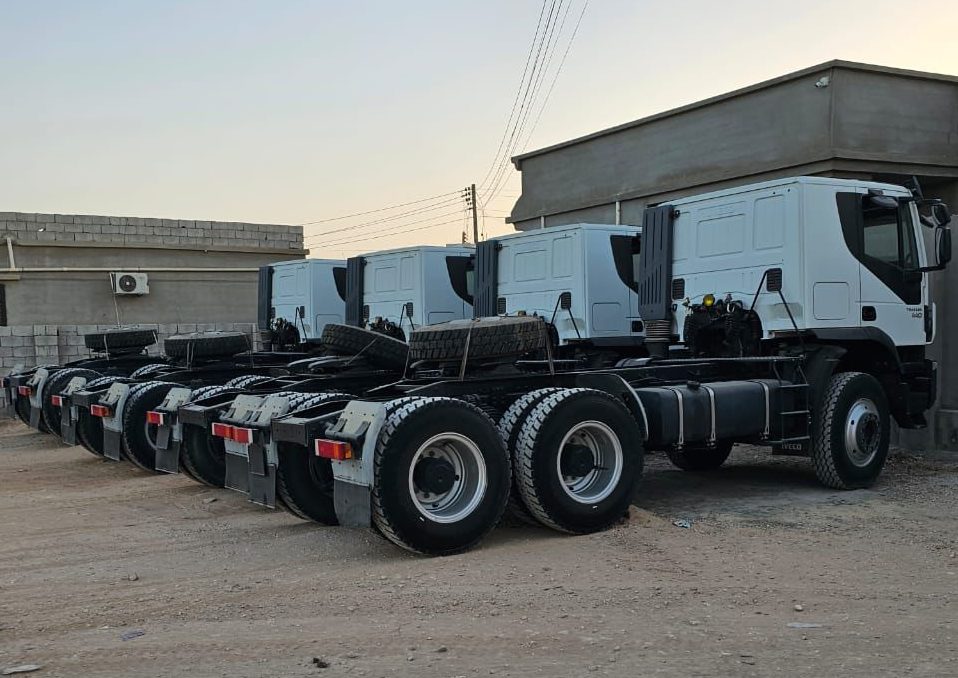
When examining the economic potential of Central Africa—a region encompassing nations such as Niger, Chad, Mali, and the Central African Republic—one cannot ignore the glaring infrastructural deficiencies that hinder trade and development. These landlocked countries, lacking direct access to ports, navigable rivers, or developed railway systems, face significant logistical challenges that have far-reaching consequences. Yet, despite these obstacles, these nations hold immense promise for trade and economic growth, making it essential for businesses and governments alike to rethink logistics strategies and partnerships.
Central Africa’s geography poses a significant barrier to trade. Unlike coastal nations that can leverage ports as gateways to global markets, countries in this region depend heavily on land transport to move goods in and out. However, the state of land transport infrastructure is dire. Paved roads, where they exist, are often limited to urban centers, leaving vast rural areas disconnected. Highways are underdeveloped, and seasonal rains frequently render unpaved roads impassable. This isolation inflates transportation costs, limits market access, and stifles economic potential.
Railways, a cornerstone of efficient logistics elsewhere, are virtually nonexistent in these nations. For example, Chad and the Central African Republic lack any meaningful railway infrastructure, forcing all cargo movement to rely on cumbersome road networks. The absence of navigable rivers further exacerbates the situation, leaving these countries with few options for cost-effective bulk transport.
These logistical limitations are not just technical problems; they are economic bottlenecks with profound implications. According to a study by the African Development Bank, transportation costs in landlocked African countries are, on average, 40% higher than in coastal nations. This disparity translates into higher consumer prices, reduced competitiveness for local businesses, and lower export revenues.
For landlocked nations like Niger, Chad, and Mali, the lack of logistical connectivity directly impacts their agricultural sectors—the backbone of their economies. Farmers struggle to get their produce to markets, resulting in significant post-harvest losses and diminished incomes. Similarly, industries dependent on imported machinery or raw materials face delays and inflated costs, deterring investment and stalling industrial growth.
Amid these challenges, the role of logistics companies becomes critical. FA Group, a leader in trade and logistics across Africa, has positioned itself as a vital partner for navigating these complex terrains. By leveraging its expertise and robust infrastructure, FA Group bridges the gap between suppliers and markets, ensuring goods reach even the most inaccessible regions.
One of FA Group’s key strengths lies in its fleet of over 200 trucks, designed to handle bulk shipments of many tons. These vehicles are equipped to traverse rough terrains and are supported by advanced tracking systems, ensuring reliable delivery even in the harshest conditions. Furthermore, FA Group’s deep understanding of local customs and regulations enables it to streamline cross-border operations, minimizing delays and complications.

Why Logistics Is Vital for Regional Development
Efficient logistics is more than just moving goods; it is the lifeblood of economic growth and integration. For Central Africa, improving logistics means unlocking markets, boosting regional trade, and fostering industrial development. For instance, Niger’s uranium exports, Chad’s oil, and Mali’s cotton rely on efficient logistics to reach global markets. Without reliable transport systems, these nations cannot fully capitalize on their natural resources.Moreover, logistics plays a crucial role in humanitarian efforts. In regions prone to food insecurity and natural disasters, timely delivery of aid and supplies can mean the difference between life and death. Companies like FA Group, with their capacity to navigate difficult terrains, become indispensable partners in such scenarios.
A Call for Strategic Partnerships
Addressing Central Africa’s logistics challenges requires a concerted effort from governments, private sector players, and international organizations. Public investment in infrastructure—such as roads, railways, and border facilities—is essential to create a more conducive environment for trade. At the same time, private companies like FA Group must continue to innovate and expand their capabilities to meet the growing demands of these markets.
International donors and development agencies also have a role to play. Initiatives like the African Continental Free Trade Area (AfCFTA) provide a framework for improving regional connectivity, but implementation must be accompanied by targeted investments in logistics infrastructure.
The Future of Logistics in Central Africa
Despite the current challenges, there is reason for optimism. Advances in technology, such as GPS tracking, digital freight platforms, and automated customs processes, offer new tools for improving logistics efficiency. Moreover, the rising interest of foreign investors in Africa’s untapped markets provides an impetus for developing better trade routes and facilities.For businesses looking to enter or expand in Central Africa, partnering with experienced logistics providers like FA Group is not just an option—it is a necessity. By navigating the region’s logistical complexities, FA Group enables companies to seize opportunities in these high-potential markets while supporting the economic growth of some of the world’s most underserved regions.
Conclusion
Central Africa’s logistics challenges are as daunting as they are transformative. They reveal the urgent need for innovative solutions and collaborative efforts to unlock the region’s potential. Companies like FA Group stand at the forefront of this transformation, proving that with the right expertise and commitment, even the most formidable barriers can be overcome. For nations, businesses, and partners, the message is clear: the road to Central Africa’s prosperity begins with logistics.
Sabha, Libya
+218 9 25 12 77 77
+216 21 21 21 40
+216 21 21 11 21
+216 21 21 65 21
contact@fa-fagroup.com